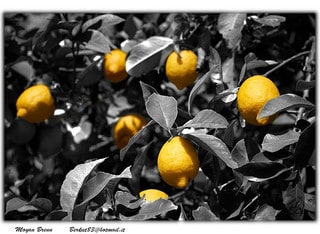At some point in life, we struggle to find our voice, our identity. And at times, especially when we’re young, we can try to adopt the persona of who we want to be. Maybe it was with Marilyn Manson T-shirts and blackened mascara eyes, over-sized Tommy Hilfiger jean or Rhino Wear, or Flock of Seagulls haircut. Or perhaps it was Boho chic, and maybe a long grunge or hipster phase.
Fortunately, we experience life, grow up, select, and refine our own tastes until they become our own.
In writing, art, and music, the same awkward phase exists. There’s a period of modeling your work after those you read and study. We imitate – we put on “their clothes.” Eventually developing a voice that is our own.
In this video on creative story telling, Ira Glass emphasizes the importance of ‘taste.’
Glass notes that work that one produces really is not that good. In fact, in another video, he notes that “anything you put on tape, from the moment you put it on tape, is going to be crap” – and because of your taste, you know that it’s going to be a disappointment. But by producing a large volume of work, you will close the gap between your work and your tastes. In an earlier installment from the same series, Glass says that “if you’re not failing all the time, you are not creating a situation where you can get super lucky.” Most people, however, see their failure and quit right away. But Glass cautions against this.
Speaking of stories, Glass’s advice reminded me of Luke 13, the Parable of the Barren Fig Tree. Jesus tells his disciples about a landowner who comes across a tree that hasn’t borne fruit, and commands that it be cut down. The gardener pleads with the owner, however, to leave it for just one year more to be cultivated, lest impatience destroy the potential for good fruit.
It seems the host of “This American Life” would advise us to be merciless in separating good fruit from dead branches and to “fight our way through.” Only then will “the work you are making [eventually] be as good as your ambitions.”

Don’t cut it down too soon!
(Photo by Moyan_Brenn via Flickr.)
There’s something to this. But Glass’s reflection left me wondering about the place that the support of God or others can have in this process. In other words, what if the journey is the point, not just the result? The ‘taste’ that Glass describes may actually be the seed from which God will bring forth fruit.
“Fighting our way through disappointment” can be either consoling or greuling. We all want to see development and growth in our work. It can also lead to obsessive workaholism, self-rejection, and unreasonable expectations. Just like a farmer who over-waters, over-trims, and overworks a tree in order to produce more fruit for sale may actually suffocate it unto a barren state – or, just as bad, bear rotten or unripened fruit.
We consistently work to bear fruit, but the question is: “Who is the fruit for?” Implicit in Glass’s video and Luke 13 is that that one’s tastes and desire to produce fruit are most relevant when they are for the sake of the other. They must be born from some deep love, and our work can bear the seeds of someone else’s work as well.


